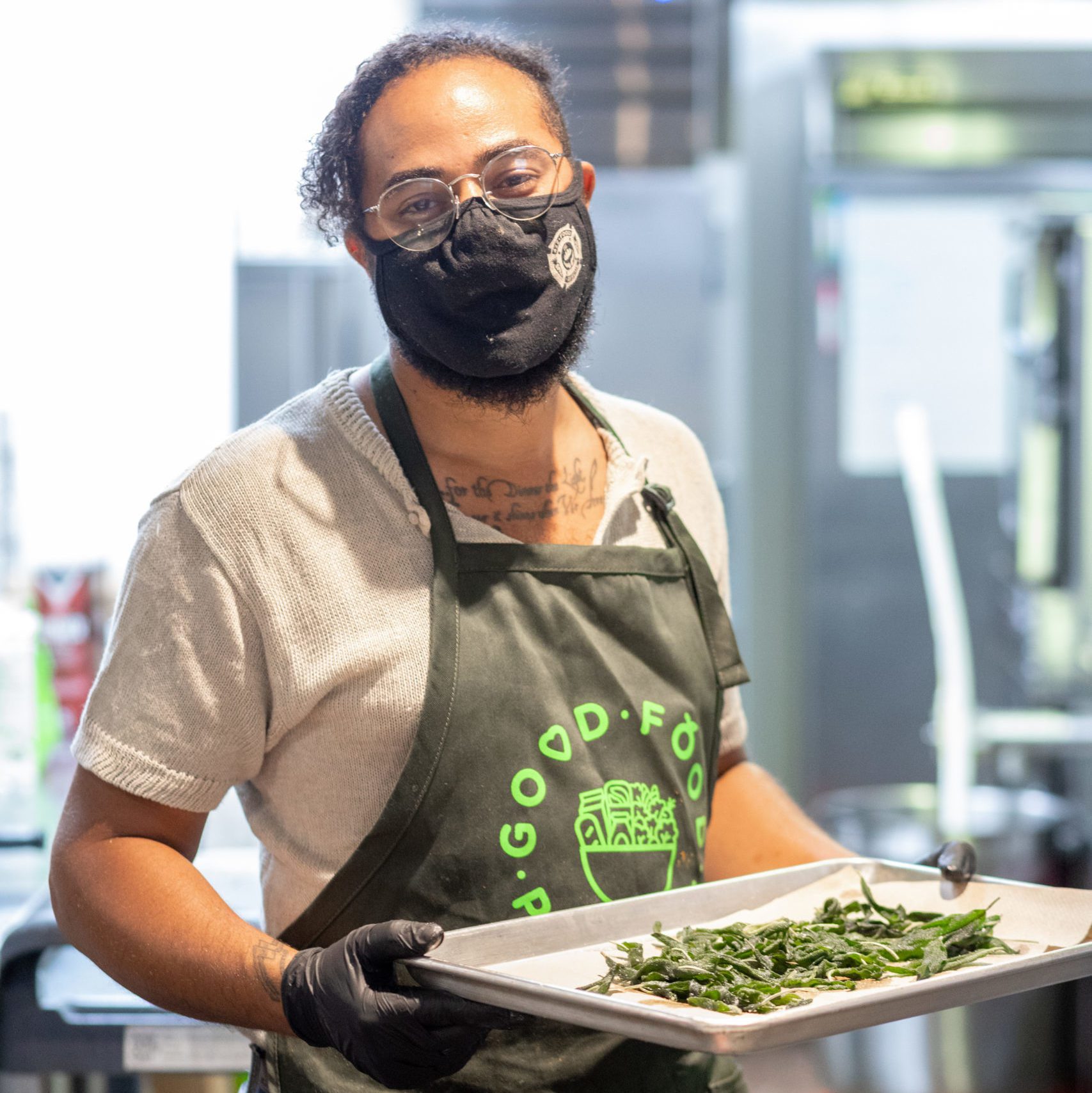A food insecurity nonprofit, 412 Food Rescue, has been hard at work creating pre-made meals for Millvale, PA, and the surrounding area’s homeless population. It uses up to 2,500 pounds of uneaten surplus from food service providers, distributing these meals across the Pittsburgh area through its Good Food Project.
The coolest part about the program is the commitment to keeping a net-zero waste presence. A minute fraction of food is thrown out at 412 Food Rescue. Reportedly as of December 2022, around 0.023% is generated — very little ends up in the trash in the organization’s kitchen.
The staff uses whatever is dropped off, making meal planning a challenging task. The menu is constantly changing. One week it could be a salmon dish, the other a roast beef meal.
These efforts go a long way in reducing methane emissions caused by landfill waste. Most of the 40% of food thrown out in this country ends up in landfills, creating the toxic gas, which is one of the biggest polluters of the atmosphere. Thus, 412 Food Rescue found a way to make sure less ends up in the trash and into the stomachs of hungry patrons.
The pilot phase began in 2019 with an experimental menu. Around 300 meals were made weekly during the pandemic. Today, the program makes around 1,200 meals a week, which are frozen to be distributed later. Freezing allows for better flexibility in storage and distribution.
“412 Food Rescue works with front-facing food businesses to collect perfectly good food that would otherwise be going to waste due to common industry practice and safety,” Greg Austin, a chef and former project manager for the Good Food Project, said to Trib Live. He is now the director of distribution initiatives for the nonprofit.
The kitchen worked with Leanpath, the waste analytics tracking firm, to develop data-driven strategies for continuous improvement. That’s important, considering there is no predicting what might show up at the doors of 412 Food Rescue. Austin told Fast Company he once received “the equivalent of half a cow from a meatpacker.”
If supplies like fresh fruit come through, it’s more of a challenge. Austin has found creative solutions, though. He made a vinegar for salad dressings from cantaloupe, honey, and yeast. Once, a college campus trout farm donated 100 fish, which were fried into fritters. Truly nothing goes to waste in his kitchen.
Gordon Food Service is now the trusted delivery partner of 412 Food Rescue, but that doesn’t stop the unpredictability. The kitchen staff are not deterred, knowing they will find a way to use everything.
Meals are sent to local nonprofits across the Pittsburgh area. Last year, around 700 meals were delivered weekly to places like the YMCA, Second Harvest, Housing Authority of Pittsburgh, Lawrenceville United Methodist Church, Homewood Children’s Village, and Millvale Free Fridge. That’s a huge step up from the 30 meals sent to the Millvale Library summer lunch program, the first to work with the Good Food Project.
Photo Courtesy 412 Food Rescue
Any spoiled scraps or anything that can’t be used entirely is sent to a composter at Ag Recycle or Pittsbrugh-area farms. That includes items like bones or stems, stuff people couldn’t consume naturally.
Volunteers are the backbone of the Good Food Project, dropping off several meals to these nonprofits. Those who wish to get involved can sign up to volunteer on the nonprofit’s website. Be warned: only two can help with kitchen prep, and only six people can volunteer to bag groceries at a time. You also have to be able to lift 25 pounds.
The Good Food Project is a strategic way to end waste and give back to the community. It will be interesting to see what the team will cook up next.





